
Ο διάσημος Βρετανός συγγραφέας Mike Carey ήρθε στην Αθήνα σαν καλεσμένος του Comicdom Con Athens το περασμένο σαββατοκύριακο και βγήκε μαζί μας βόλτα στην Ακρόπολη και τα σοκάκια με τα παλιατζίδικα στο Μοναστηράκι για να μιλήσουμε για τα highlights της καριέρας του.
O Mike Carey γεννήθηκε και μεγάλωσε στο Liverpool. Σπούδασε φιλολογία και δούλευε για πολλά χρόνια ως δάσκαλος πριν ξεκινήσει να γράφει comics. Ήταν πάντα του φαν των comics, και ακόμα και σήμερα μετά τις τόσες επιτυχίες του, εξακολουθεί να είναι ήπιων τόνων και να κυκλοφορεί περήφανα με το vintage t-shirt του με τον Galactus ή το σήμα του Doctor Who.
@manolis: Πότε ήταν η πρώτη σου επαφή με τα comics?
Mike Carey: I was always a comic reader. I learned to read from comics, before I ever discovered the lure of books, and the love affair never faded.
@manolis: Θυμάσαι ποια ήταν τα πρώτα που διάβασες;
Mike Carey: The first comics I read were British humour comics – the Beano and Dandy, Sparky, Beezer, Buster, Topper, and best of all, the so-called Powerhouse Comics, Wham, Pow and Smash. They were the brainchild of Brit comic genius Leo Baxendale, and I mainlined his stuff whenever I could get hold of it. It was crazily over-detailed, every panel crammed with sight gags, and it had a surreal intensity that was all its own.
@manolis: Με τα αμερικάνικα (υπερηρωικά) comics πότε πρωτοασχολήθηκες;
Mike Carey: When I got a little older. Mostly DC and Marvel – and this would have been late 60s, so there was some glorious stuff going on there – but also Dell, Gold Key, Atlas, whatever I could get my hands on. I even used to read my big sister’s girly comics, Bunty and Mandy. They had some good adventure stories in them and I wasn’t at all put off by female protagonists.
@manolis: Σκεφτόσουν από τότε πως ήθελες μια μέρα να γράψεις και εσύ comics;
Mike Carey: I didn’t fantasise about writing them – not as a kid. They seemed to be at too great a remove from my life. I had no conception of the people who could create stuff like that.

Τα πρώτα comics που έγραψε ήταν για μικρές ανεξάρτητες εταιρίες και αργότερα για την θρυλική Βρεταννική ανθολογία 2000 A.D. Η πρώτη μεγάλη δουλειά του που τον έκανε γνωστό στο ευρύτερο κοινό διεθνώς ήταν η σειρά LUCIFER για την οικογένεια τίτλων για ενήλικους αναγνώστες Vertigo της DC Comics. Η σειρά πρωταγωνιστούσε τον χαρακτήρα του Εωσφόρου που είχε κάνει την εμφάνιση του στον υπερ-επιτυχημένο τίτλο SANDMAN του Neil Gaiman. 
@manolis: Ποιες ήταν οι αντιδράσεις του κόσμου και του κύκλου σου την εποχή εκείνη που πρωτοκυκλοφόρησε το LUCIFER?
Mike Carey: There was a tiny ripple of controversy right at the start. I posted a lot on the Vertigo message boards back in those days, and I got a couple of half-hearted death threats from some soi-disant Christians. Mostly, though, comics fly along below the cultural radar of the morality police, so you kind of get a free pass. And of course it helped that we were taking a character who’d already been defined in another comic.
What I did do was to deprive Jamie Delano of a good title for his monthly series Outlaw Nation, which was originally going to be called The Great Satan. Vertigo decided that if they launched Lucifer and The Great Satan in successive months, someone might think there was a hidden agenda!
@manolis: Πως προσέγγισες τον Διάβολο σαν χαρακτήρα; Και πως εξελίχθηκε αυτός ο χαρακτήρας κατά τη διάρκεια της σειράς;
Mike Carey: Initially, I just tried to make him as much like Neil [Gaiman]’s Lucifer as I could possibly manage. As the series went on, though, my sense of his voice and his personality both strengthened and shifted. He became very much an embodiment, for me, of a certain approach to life – a kind of supreme solipsism and self-absorption.
I knew from the start that with a protagonist like Lucifer, certain kinds of story would be ruled out from the start. You couldn’t imagine him getting into fights for example. He’s second in power only to God, which means that nothing can directly threaten him. So you have to make different things be at stake, for him, and put him in situations where power isn’t the main determinant. You also have to let him be the catalyst for other people’s stories, as well as following his own. In fact, Lucifer would fight duels to the death twice in the book’s run, but they were the exceptions to the rule.
In a weird sense, too, he became an Everyman character for me. His main goal is to escape his parent’s influence and define himself as a free agent. Which is everyone’s goal, at some point in their life.

@manolis: Για ποιες ιστορίες από τα 75 τεύχη που διήρκεσε η σειρά είσαι πιο περήφανος;
Mike Carey: I’m most proud of the one-off stories, without a doubt. The arc is huge, but it was in the one-offs that I did the most experimental and risk-taking storytelling. I think many of those single-issue stories are among the best things I’ve managed to write, ever – starting with issue 4, Born With the Dead, and running through #24 (The Writing on the Wall) #28 (Breaking and Entering, which was the first Gaudium one-shot), #33 (Bearing Gifts), #58 (The Yahweh Dance), #66 (The Beast Can’t Take Your Call Right Now) and the Girls’ Night Out story that was our coda.
@manolis: Κοιτώντας πίσω, υπάρχει κάτι για το οποίο έχεις μετανιώσει;
Mike Carey: I regret that the characters of Fenris and Lilith were introduced so late in the story. I should have at least foreshadowed them in earlier arcs.
Μετά την αρχική επιτυχία του LUCIFER, ανέλαβε τα συγγραφικά ηνία της μακροβιότερης και πιο επιτυχημένης σειράς της Vertigo, του HELLBLAZER, με πρωταγωνιστή τον John Constantine, από το τεύχος 175 έως το 215, την ίδια περίοδο που ο χαρακτήρας έκανε το (ατυχές) κινηματογραφικό του ντεμπούτο στην ταινία CONSTANTINE με τον Keanu Reeves.
@manolis: Θυμάσαι τις αντιδράσεις των αναγνωστών του τίτλου όταν είχε βγει η ταινία;
Mike Carey: Oh, yeah! A lot of HELLBLAZER readers hated the movie, of course – both because of the casting of Keanu Reeves as John and because of the way it simplified and distorted some of the core themes and situations of the comic book. There was a big outcry, which made me wonder why the producers bothered to work from the Hellblazer intellectual property in the first place. It’s not like it bought them any goodwill, or any favourable pre-publicity, and comic readers are such a small group that word-of-mouth effects aren’t going to help you very much in any case. It’s very different from adapting a bestselling novel.
@manolis: Εσένα σε βοήθησε ή σε έβλαψε στην δουλειά σου στο comic;
Mike Carey: The great thing, from my point of view, is that I got to write the HELLBLAZER OGN, ALL HIS ENGINES, purely on the back of the movie. DC wanted to have a book out at the right time, which would feature the real John Constantine but which wouldn’t be too weighed down with continuity. All His Engines was what I pitched – and it’s my favourite out of all the Hellblazer stories I got to tell. John playing demons off against gods and walking out of the ensuing conflagration with a flip one-liner. What’s not to like? Plus I got Chas [ο καλύτερος φίλος, σοφέρ/ταξιτζής και για κάποιους sidekick του Constantine] laid, which I felt like I owed him by that time.

@manolis: O John Constantine είναι κατά γενική ομολογία, τρελός μαλάκας και κάφρος. Τι είδες εσύ στον χαρακτήρα του που σε ενδιέφερε;
Mike Carey: I love the fact that he’s so irreverent and cocky. He doesn’t just talk to angels and demons, he talks back to them. He gives them attitude. He’s the voice of the common man saying a big sod off to all the powers-that-be, human or divine or anything in between.
@manolis: Τι ιστορίες ήθελες να πεις για αυτόν;
Mike Carey: I wanted to do two things, in my run on the book. I wanted to bring the supernatural elements back to the centre, but I also wanted to re-establish John as a guy who wins not with magic but with balls, bluff and low cunning. There was a scene in Red Sepulchre, my second story arc, where he’s trying to get away from these two big bruisers, and at one point he just wads up his cigarette packet and throws it into the air. He tells the guy “Nine tenths of magic is just making the mug punters look the wrong way” – then decks the guy while his eye is on the cigarette packet. That’s John, in a nutshell. He’s as much a shabby conjuror as he is a genuine mystic – and he makes both of those things work for him.

Εκτός από το LUCIFER και το HELLBLAZER την πρώτη του περίοδο στην Vertigo δημιούργησε και τις σειρές FAKER, MY FAITH IN FRANKIE, CROSSING MIDNIGHT (για το οποίο μου είχε μιλήσει παλιότερα εδώ) και τα νεανικά graphic novels RE-GIFTERS και CONFESSIONS OF A BLABBERMOUTH, ενώ επιμελήθηκε και την μεταφορά του δημοφιλούς μυθιστορήματος NEVERWHERE του Neil Gaiman σε μορφή comics.
Παράλληλα είχε ξεκινήσει να δουλεύει και στους πρώτους του υπερηρωικούς τίτλους στην αντίπαλη εταιρία Marvel, με τους τίτλους ULTIMATE ELEKTRA (συνέντευξη), ULTIMATE FANTASTIC FOUR και SPELLBINDERS (συνέντευξη), πριν ξεκινήσει το ιστορικό του run στον υπερ-δημοφιλή τίτλο των X-MEN, το 2006.
(Είχα μιλήσει τότε με τον Mike, μερικούς μήνες πριν αναλάβει τον τίτλο, για τα σχέδια του για τους X-MEN - μπορείτε να διαβάσετε αυτή την συνέντευξη εδώ)
@manolis: Ποια ήταν η πρώτη σου σκέψη μόλις σου ανακοινώθηκε πως θα έγραφες τους X-MEN, τι ήταν αυτό που σε είχε ενθουσιάσει πιο πολύ;
Mike Carey: The biggest excitement for me, right out of the gate, was getting to assemble my own team – my own group of X-MEN. Mike Marts, who was my first editor on the book, sent me a list of the characters who were already ring-fenced by Ed Brubaker on Uncanny X-Men [ο υπεύθυνος συγγραφέας εκείνη την περίοδο για τον κύριο και μακροβιότερο τίτλο των X-MEN]: I got my pick of the rest. It was just an amazing feeling, going through all the great rosters of the past and cherry-picking the ones I was really aching to write. The stuff of dreams, you know?
I loved that first line-up. Rogue. Cannonball. Iceman. Cable. Mystique. Sabretooth. Karima Shapandar. Lady Mastermind. I wish I could have had another year to play with them before we tested them to destruction in Messiah Complex.
To MESSIAH COMPLEX ήταν ένα από τα πιο αγαπημένα από τους αναγνώστες crossovers μεταξύ όλων των τίτλων των X-MEN, τα οποία επιμελήθηκε ο Mike Carey. Όσο καιρό έμεινε στους τίτλους, δούλεψε ακόμα στα crossover του SECOND COMING, UTOPIA και NECROSHA-X ενώ έγραψε μόνος του τα ENDANGERED SPECIES και το πιο επιτυχημένο του και πιο πρόσφατο AGE OF X. Η κάθε μια από αυτές τις ιστορίες έχει κυκλοφορήσει μόνη της σε συλλογή και διαβάζεται ανεξάρτητα, αλλά όλες μαζί συνθέτουν το παζλ της ιστορίας και της πάλης των μεταλλαγμένων ηρώων για επιβίωση μετά από μια καταστροφή που αποδεκατίζει το γένος τους.
Ο Carey έμεινε στους τίτλους των X-MEN για 6 ολόκληρα χρόνια, από το #188 έως το #260, διάστημα κατά το οποίο ο τίτλος άλλαξε ονομασία σε X-MEN LEGACY και είχε σαν πρωταγωνιστή αντί για μια ομάδα μεταλλαγμένων, έναν συγκεκριμένο ήρωα, στην αρχή τον Professor X και αργότερα την Rogue.
@manolis: Το τελευταίο σου τεύχος των X-MEN κυκλοφόρησε μόλις πριν λίγους μήνες. Πως βλέπεις τώρα την εμπειρία αυτή συνολικά, που είχες για πρώτη φορά την εμπειρία να παίξεις με κάποιους τόσο καθιερωμένους και δημοφιλείς χαρακτήρες, που ανήκουν σε κάποια μεγάλη εταιρία;
Mike Carey: It was a huge pleasure for me. I’d grown up with those characters, and I had very strong attachments to them. It was also a great learning experience, because I’d never worked before on a book that was a part of a huge company franchise. It has different rhythms, different constraints, to the work I’d been doing for Vertigo, and I got a lot out of it, just in terms of being exposed to that different work model. Obviously you’re still working for the most part with one main editor on your monthly book – but you’re also working with that larger entity that is the X-Office [η ομάδα των editors που είναι επικεφαλείς για την οικογένεια των τίτλων των X-Men]. You have to know what’s going on in the other books, you have to be prepared to play off it.
And of course you have to be ready to drop what you’re doing, roll up your sleeves and get stuck into a big crossover extravaganza every now and then. Planning for ENDANGERED SPECIES and MESSIAH COMPLEX was getting underway right as I walked through the door, and I was very heavily involved in that whole event – which is one reason why it had such spectacular consequences for my team, and for my book. Then there was SECOND COMING, UTOPIA, NECROSHA, and of course my very own AGE OF X, which was just a joyous thing to get to do.
Μετά την αποχώρηση του από τους X-MEN ο Carey γράφει πλέον μόνο έναν τίτλο comics, τον οποίο δημιούργησε ο ίδιος σε συνεργασία με τον σκιτσογράφο με τον οποίο είχε δουλέψει στον πρώτο του τίτλο στην Vertigo, τον Peter Gross.
Το THE UNWRITTEN ξεκίνησε το 2009, και ασχολείται με την αλλόκοτη ιστορία του Tom Taylor, του γιου του πιο επιτυχημένου συγγραφέα παιδικών/εφηβικών βιβλίων φαντασίας, των οποίων ο πρωταγωνιστής, ο Tommy Taylor, είναι βασισμένος στον ίδιο τον Tom, και τα οποία θυμίζουν έντονα (και όχι τυχαία) τα βιβλία και τις περιπέτειες του Harry Potter. Όταν ο πατέρας του εξαφανίζεται μυστηριωδώς, μια αινιγματική γυναίκα (με το όνομα μιας άσημης ηρωίδας του Dickens) εμφανίζεται και του παρουσιάζει αδιάσειστα στοιχεία ότι ο ίδιος είναι ο χαρακτήρας που δημιούργησε ο πατέρας του στο βιβλίο που έχει καταφέρει κάπως να έρθει στη ζωή!
@manolis: ποια ήταν η αρχική σου έμπνευση για αυτό τον τίτλο;
Mike Carey: There were a lot of different things feeding into this process. Peter [Gross] had an idea for a story that would basically be two parallel stories – following a character in their own real life, and at the same time in a story written by someone else, in which a fictional version of that character had been used. And I had a story about the magic trumpet in Hindu mythology that signals the end of one age of the Earth and the beginning of the next – a musical instrument that reshapes reality. I think it was Pornsak Pichetshote who said “they could be different aspects of the same story”. And it turned out they could.
But probably the most important catalyst was Christopher Milne’s autobiography, The Enchanted Places. Milne was the Christopher Robin of the Winnie the Pooh stories, and he writes very feelingly about the predicament of being famous because you’re in somebody else’s work – famous, but not on your own terms. Tom’s predicament is basically Chris Milne’s predicament, translated into the language of the Harry Potter era.

@manolis: Αντιμετώπισες ποτέ θέματα επειδή χρησιμοποίησες το αρχέτυπο του χαρακτήρα του έφηβου μαθητή μαγείας, όπως ο Harry Potter ή ο Tim Hunter (από την σειρά BOOKS OF MAGIC του Neil Gaiman);
Mike Carey: A few reviewers gave us a black mark because of it. They thought what we were doing was a pastiche, or maybe a straight steal. But of course, once we’ve set up who Tom is, the Harry Potter parallels become less and less important.
@manolis: Ποιες ήταν, ή είναι ακόμα, οι φιλοδοξίες σου σαν συγγραφέας;
Mike Carey: I just love telling stories. I love it when they work. My main ambition is to keep on doing that.
But if I’m honest, there are a lot of things I’d love to do. I’d love to write a screenplay that actually gets turned into a movie. I’d love to be invited to write a Doctor Who. I’d love to write a lot more short stories and get a collection out there. I’d love to do more comedy, and more YA stuff – a YA novel, which I’ve still never done.
I want to still be doing this when I’m 90.

Προτεινόμενη βιβλιογραφία του Mike Carey, τα δεκατρία σημαντικότερα comics της καριέρας του:
THE UNWRITTEN VOL. 1: TOMMY TAYLOR AND THE BOGUS IDENTITY
X-MEN: SUPERNOVAS
X-MEN LEGACY:DIVIDED HE STANDS
LUCIFER VOL. 1: DEVIL IN THE GATEWAY
HELLBLAZER: STATIONS OF THE CROSS










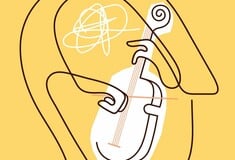
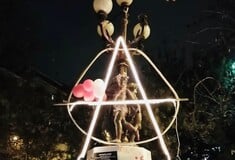

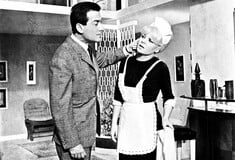
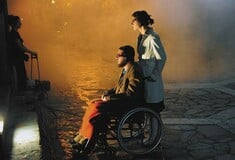










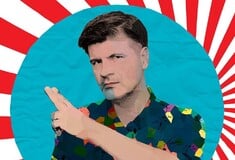


σχόλια